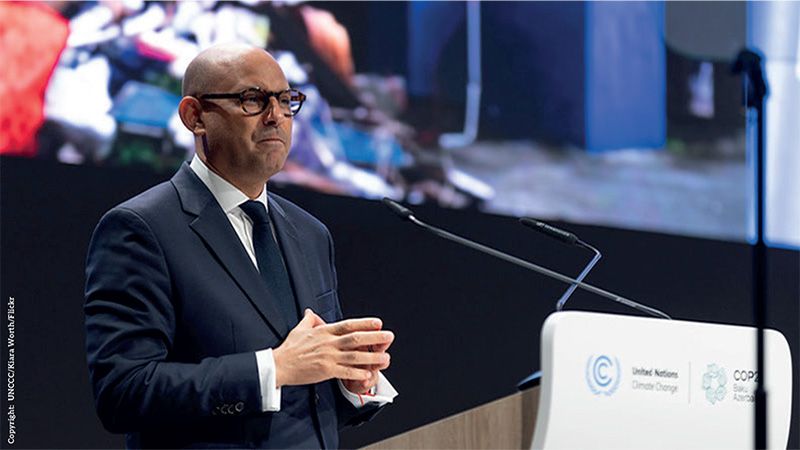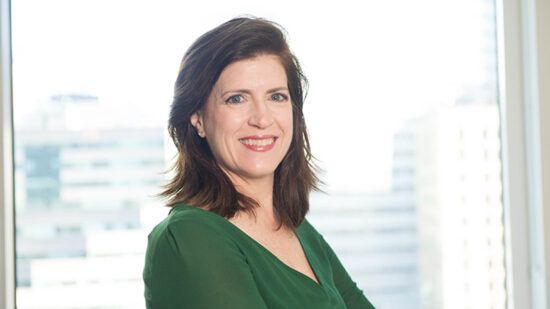The shift to clean energy and climate resilience “will not be stopped”, said UN climate change executive secretary Simon Stiell in his address opening proceedings at COP29, before making a plea for urgent global cooperation on climate change.
“We mustn’t let 1.5 slip out of reach. Even as temperatures rise, the implementation of our agreements must claw them back,” he continued. “Clean energy and infrastructure investment will reach $2trn in 2024, almost twice that of fossil fuels. Our job is to accelerate this and make sure its huge benefits are shared by all countries and all people.”
The 2024 Yearbook – an annual stocktake of efforts made to progress climate action – was also launched on the first day of COP29, highlighting “significant advances” over the past 12 months. Renewable energy capacity, for example, expanded by 473 gigawatts in 2023, a 14% increase during the year. Meanwhile, global investment in clean technology manufacturing reached £200bn – a 70% increase from 2022.
Public finance is essential but insufficient, it argued, as private finance has the power to “turbocharge” the green transition, particularly in emerging markets and developing economies.
Meanwhile, the World Meteorological Organisation’s State of the Climate 2024 update once again issues a red alert over the sheer pace of climate change, with 2024 on track to be the warmest year on record. The global mean surface air temperature was 1.54°C between January and September, boosted by a warming El Niño event.
‘Success will be determined by the financial agreements made’
With talks about developing a more ambitious climate finance goal (or New Collective Quantified Goal) firmly on the agenda, alongside finalising an agreement on an effective international carbon market and confirming details about the loss and damage fund, many commentators have dubbed COP29 the ‘finance COP’.
Parties have already agreed on standards for creating carbon credits under Article 6.4 of the Paris Agreement at COP, which could increase demand for carbon credits and ensure that the international carbon market operates with integrity under the supervision of the United Nations.
Regarding the outcome, COP29 President Mukhtar Babayev, said this will be “a game-changing tool” to direct resources to the developing world, but there was much more work to do. Finalising Article 6 negotiations could reduce the cost of implementing national climate plans by $250bn annually.
Nicola Day, deputy head of Greenbank, said: “The cornerstone of this year’s Climate Change Conference will focus on agreeing and adopting a new climate finance target, replacing the $100bn per annum commitment set in 2009. Against a turbulent geopolitical backdrop, reaching agreements is set to be ever more challenging, and the success of this COP will largely be determined by the finance agreements that can be made.”
Claire Jones, partner and head of responsible investment at LCP, agreed: “With a likely rollback in climate action from the US government, long-term investors should consider stepping up their climate action. It is in their interests to contribute to maintaining financial stability and reducing the losses associated with climate change, as well as considering outcomes over time horizons greater than one political cycle.
“Climate change is one of the most financially material systemic risks that long-term investors face – rather than just impacting the value of one single stock, it has the potential to depress economies and even cause a financial market collapse. The COP29 climate talks are a key opportunity for investors to demonstrate their support for strong climate action.
Backlash against ‘Big Oil’
However, concerns are already mounting that this year’s UN climate talks have been hijacked by oil and gas interests. As reported last week, an undercover investigator working for Global Witness filmed a meeting between themselves and the CEO of the COP29 talks, Elnur Soltanov – who is also on the board of the Azerbaijani state oil company, SOCAR – in which Soltanov touted opportunities to invest in Azerbaijani oil and gas.
An analysis by Global Witness found that SOCAR has struck a slew of deals potentially worth more than $8bn in 2024, including the first-ever foreign acquisitions. Earlier this year, Global Witness also showed evidence that the Abu Dhabi National Oil Company sought oil and gas deals worth $100bn in 2023, the year when the UAE hosted COP28, leading them to conclude that petrostates are using UN climate talks – which are designed to reduce greenhouse gas emissions – as an opportunity to clinch oil and gas deals.
Global Witness has taken over the cop29.com web domain, calling on governments to make fossil fuel companies pay up for their role in climate breakdown.
Reacting on LinkedIn, Andrew Griffiths, director of policy and corporate development at Planet Mark, called on the United Nations to “kick oil and gas out of the COP process”.
“Enough is enough and the United Nations needs to rule that no oil and gas lobbyists should be allowed anywhere near the negotiations or surrounding fringe events.
“Every year that I have attended COP so far, oil and gas lobbyists have been by far the largest delegation – bigger than any nation-state, including the hosts. It’s literally bonkers and there should be some kind of consequences or sanctions levelled against those individuals and organisations caught abusing their power with genuinely insane conflicts of interest.
“Bravo Global Witness for uncovering this utterly scandalous abuse of power. He should be ashamed of himself.”








